Should You Keep a Monkey as a Pet?
Ankita Rai | May 29, 2025, 16:32 IST
( Image credit : Pexels, Times Pets )
Monkeys may seem like adorable, intelligent pets, but the reality is far more complex and challenging. Keeping a monkey at home involves legal hurdles, serious health risks, emotional strain, and high costs. These wild animals require constant stimulation, specialized care, and can become aggressive with age. Most owners are unprepared for the lifelong responsibility, often leading to abandonment or suffering for the animal. Instead of owning a monkey, supporting conservation efforts and sanctuaries is a more ethical and sustainable way to admire these fascinating creatures without compromising their well-being.
Monkeys are fascinating, intelligent, and curiously human-like. It’s no wonder that many people dream of having one as a pet. The idea of a playful monkey perched on your shoulder or mimicking your daily routine seems straight out of a storybook. But before you follow that impulse, it’s important to ask yourself a serious question: Is a monkey really meant to live in your home? The reality of owning a monkey is far removed from the fantasy. It’s not about having a glamorous exotic companion, it’s about taking full responsibility for a highly intelligent, emotionally complex, and incredibly active wild animal. Let’s look at what truly happens when a monkey becomes part of your everyday life.
The Fascination with Pet Monkeys
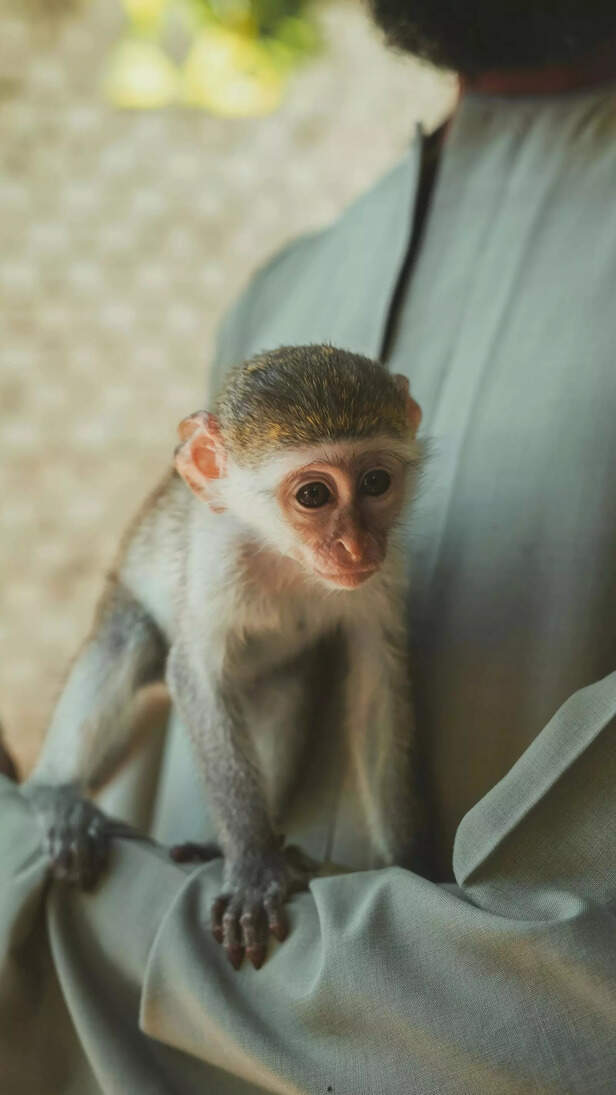
Monkeys naturally captivate us. Their expressive faces, quick movements, and social behaviors make them seem almost human. Smaller species like capuchins and marmosets, in particular, may appear manageable and entertaining. On the surface, they seem like quirky little companions who could learn tricks or share emotional bonds. However, beneath this charm lies a demanding reality. A monkey is not a substitute for a child, nor are they like dogs or cats. They are wild animals with instincts and needs that simply do not align with domestic life.
Can You Even Keep One?
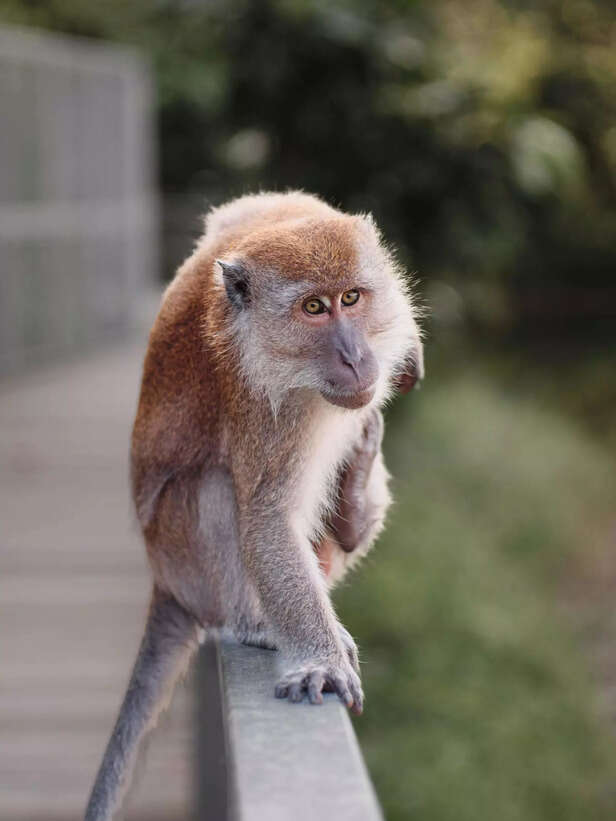
In many regions, owning a monkey is illegal. Where it is permitted, strict licensing and regulations usually apply. These laws exist for a reason monkeys are not domesticated, and their welfare in captivity often suffers. Many are taken from the wild under inhumane conditions, and even captive-bred monkeys require expert care and highly controlled environments. Even if you manage to legally acquire a monkey, legality does not equal morality. The ethics of keeping a monkey as a pet are heavily questioned by animal welfare experts.
The Dark Side of Monkey Ownership

What most potential owners fail to consider is how difficult monkeys are to care for long-term. They demand constant stimulation, social interaction, and space to explore. In the wild, monkeys live in tightly knit social groups, roam large areas, and develop complex relationships. In a home, they often become bored, anxious, and aggressive. This aggression tends to worsen with age, especially as monkeys reach sexual maturity. Many owners report bites, scratches, and erratic behavior. Training offers limited success, and once these animals grow out of their juvenile phase, they become increasingly difficult to handle.
Health Risks You Might Not Think Of
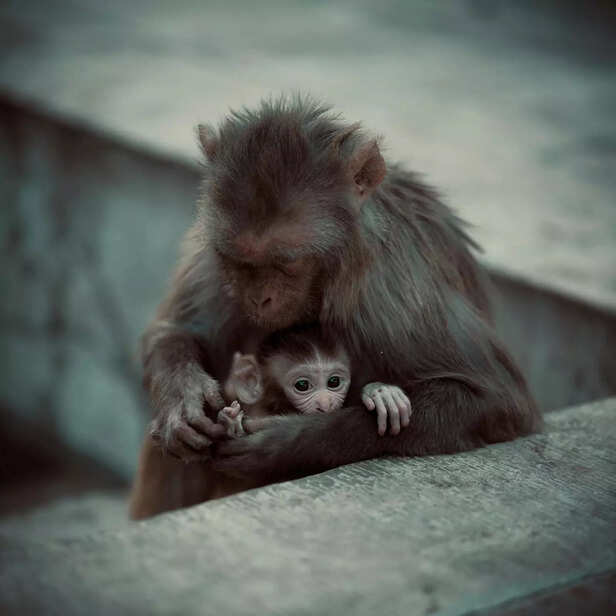
Keeping a monkey also comes with health risks—for both the animal and the owner. Monkeys can carry viruses and bacteria that are harmless to them but dangerous to humans. Bites, scratches, or exposure to bodily fluids can transmit infections, some of which may be serious or even life-threatening. The risks are amplified in homes with children, elderly individuals, or those with weakened immune systems. It's a level of biohazard that few consider when imagining life with a monkey.
A Full-Time, Expensive Commitment
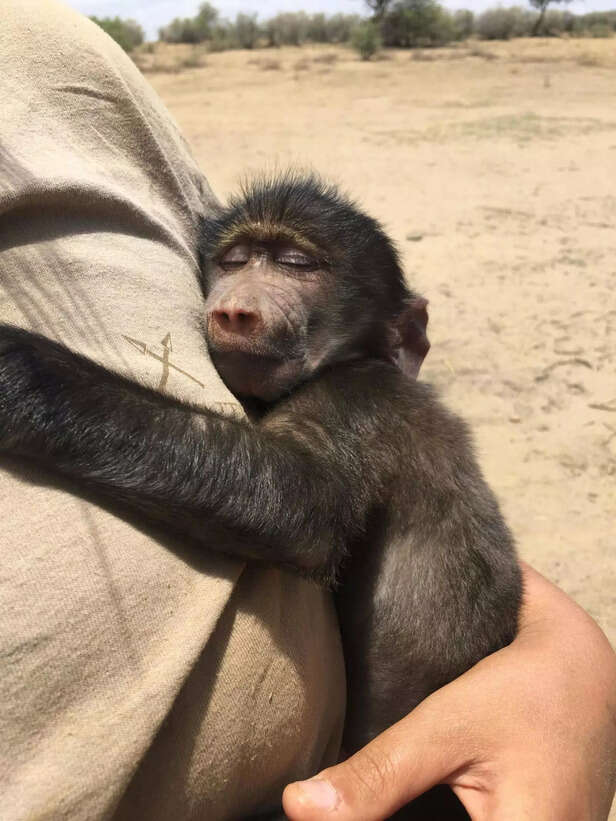
Monkeys are high-maintenance pets with lifespans ranging from 20 to 40 years. They need specialized diets, veterinary care from exotic animal experts, and living environments that mimic their natural habitat. This includes space to climb, play, and socialize—not a typical cage or enclosure. Leaving them alone for extended periods is out of the question. A bored monkey can become destructive—ripping up furniture, chewing wires, or injuring itself. And the financial cost is steep. From food and enclosures to medical bills and permits, the expenses are ongoing. Insurance typically does not cover any damage they may cause.
Emotional Burden on Both Parties
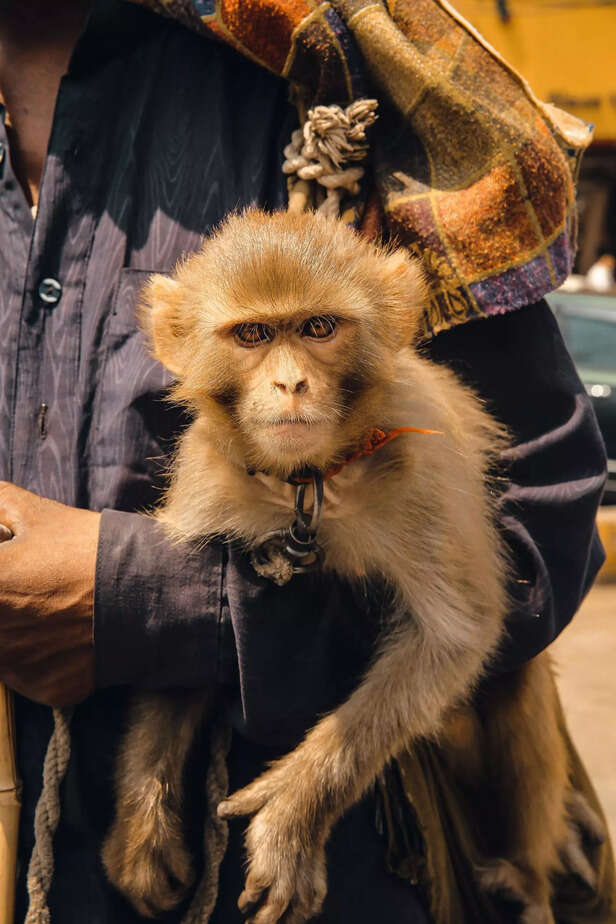
Beyond the physical and financial challenges, the emotional toll of keeping a monkey can be overwhelming. Owners often feel guilt, frustration, and anxiety as they struggle to meet the animal’s complex needs. Monkeys are emotionally intelligent and sensitive to their environment. When deprived of social interaction and mental stimulation, they can experience severe stress, loneliness, and depression. Over time, many owners realize they cannot continue, leading to attempts to rehome the monkey. But rehoming a primate is far more complicated than rehoming a domestic pet. Few sanctuaries have the resources to take in monkeys, and some animals are tragically abandoned or euthanized when no alternatives exist.
Better Alternatives to Pet Ownership
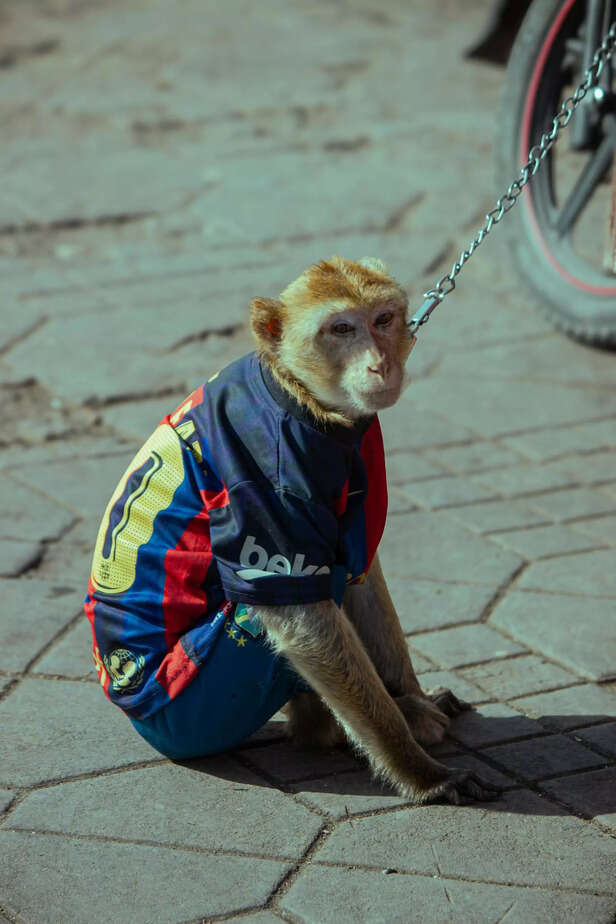
If you admire monkeys and want to support their well-being, there are far better options than keeping one as a pet. Contributing to wildlife refuges, supporting conservation efforts, or volunteering at ethical sanctuaries allows you to make a real difference without harming the animals. You can also help educate others about the reality of exotic pet ownership and advocate for stronger animal welfare laws. Appreciating monkeys from a respectful distance ensures their safety and preserves their dignity.
The Bottom Line
Monkeys are extraordinary creatures , intelligent, social, and full of personality. But they are not meant to live in living rooms or backyards. What begins as a whimsical dream can quickly turn into a stressful, heartbreaking experience for both the human and the animal. The more responsible choice is to respect monkeys as wild beings. Let them live where they belong—in their natural environments, among their own kind. Your home is better suited for animals who have evolved to live alongside humans. And monkeys? They deserve freedom, safety, and a life that honors their wild nature.
Discover expert advice and the latest tips on pet care, training, health, and more. Stay updated with all things pets at Times Pets!
The Fascination with Pet Monkeys

people are often fascinated towards monkeys
( Image credit : Pexels )
Monkeys naturally captivate us. Their expressive faces, quick movements, and social behaviors make them seem almost human. Smaller species like capuchins and marmosets, in particular, may appear manageable and entertaining. On the surface, they seem like quirky little companions who could learn tricks or share emotional bonds. However, beneath this charm lies a demanding reality. A monkey is not a substitute for a child, nor are they like dogs or cats. They are wild animals with instincts and needs that simply do not align with domestic life.
Can You Even Keep One?

should you keep one
( Image credit : Pexels )
In many regions, owning a monkey is illegal. Where it is permitted, strict licensing and regulations usually apply. These laws exist for a reason monkeys are not domesticated, and their welfare in captivity often suffers. Many are taken from the wild under inhumane conditions, and even captive-bred monkeys require expert care and highly controlled environments. Even if you manage to legally acquire a monkey, legality does not equal morality. The ethics of keeping a monkey as a pet are heavily questioned by animal welfare experts.
The Dark Side of Monkey Ownership

there is a dark side to it
( Image credit : Pexels )
What most potential owners fail to consider is how difficult monkeys are to care for long-term. They demand constant stimulation, social interaction, and space to explore. In the wild, monkeys live in tightly knit social groups, roam large areas, and develop complex relationships. In a home, they often become bored, anxious, and aggressive. This aggression tends to worsen with age, especially as monkeys reach sexual maturity. Many owners report bites, scratches, and erratic behavior. Training offers limited success, and once these animals grow out of their juvenile phase, they become increasingly difficult to handle.
Health Risks You Might Not Think Of

there might be health risks
( Image credit : Pexels )
Keeping a monkey also comes with health risks—for both the animal and the owner. Monkeys can carry viruses and bacteria that are harmless to them but dangerous to humans. Bites, scratches, or exposure to bodily fluids can transmit infections, some of which may be serious or even life-threatening. The risks are amplified in homes with children, elderly individuals, or those with weakened immune systems. It's a level of biohazard that few consider when imagining life with a monkey.
A Full-Time, Expensive Commitment

they need expensive commitment
( Image credit : Pexels )
Monkeys are high-maintenance pets with lifespans ranging from 20 to 40 years. They need specialized diets, veterinary care from exotic animal experts, and living environments that mimic their natural habitat. This includes space to climb, play, and socialize—not a typical cage or enclosure. Leaving them alone for extended periods is out of the question. A bored monkey can become destructive—ripping up furniture, chewing wires, or injuring itself. And the financial cost is steep. From food and enclosures to medical bills and permits, the expenses are ongoing. Insurance typically does not cover any damage they may cause.
Emotional Burden on Both Parties

there can be a emotional burden as well
( Image credit : Pexels )
Beyond the physical and financial challenges, the emotional toll of keeping a monkey can be overwhelming. Owners often feel guilt, frustration, and anxiety as they struggle to meet the animal’s complex needs. Monkeys are emotionally intelligent and sensitive to their environment. When deprived of social interaction and mental stimulation, they can experience severe stress, loneliness, and depression. Over time, many owners realize they cannot continue, leading to attempts to rehome the monkey. But rehoming a primate is far more complicated than rehoming a domestic pet. Few sanctuaries have the resources to take in monkeys, and some animals are tragically abandoned or euthanized when no alternatives exist.
Better Alternatives to Pet Ownership

there are alternatives
( Image credit : Pexels )
If you admire monkeys and want to support their well-being, there are far better options than keeping one as a pet. Contributing to wildlife refuges, supporting conservation efforts, or volunteering at ethical sanctuaries allows you to make a real difference without harming the animals. You can also help educate others about the reality of exotic pet ownership and advocate for stronger animal welfare laws. Appreciating monkeys from a respectful distance ensures their safety and preserves their dignity.
The Bottom Line
Monkeys are extraordinary creatures , intelligent, social, and full of personality. But they are not meant to live in living rooms or backyards. What begins as a whimsical dream can quickly turn into a stressful, heartbreaking experience for both the human and the animal. The more responsible choice is to respect monkeys as wild beings. Let them live where they belong—in their natural environments, among their own kind. Your home is better suited for animals who have evolved to live alongside humans. And monkeys? They deserve freedom, safety, and a life that honors their wild nature.
Discover expert advice and the latest tips on pet care, training, health, and more. Stay updated with all things pets at Times Pets!
Frequently Asked Questions (FAQs)
- Can monkeys be potty trained like dogs or cats?No, monkeys cannot be reliably potty trained and often have poor hygiene habits.
- Are monkeys affectionate and cuddly pets?While young monkeys may seem affectionate, they usually become aggressive and unpredictable with age.
- Is it legal to keep a monkey as a pet everywhere?No, monkey ownership is illegal or heavily restricted in many regions due to welfare and safety concerns.
